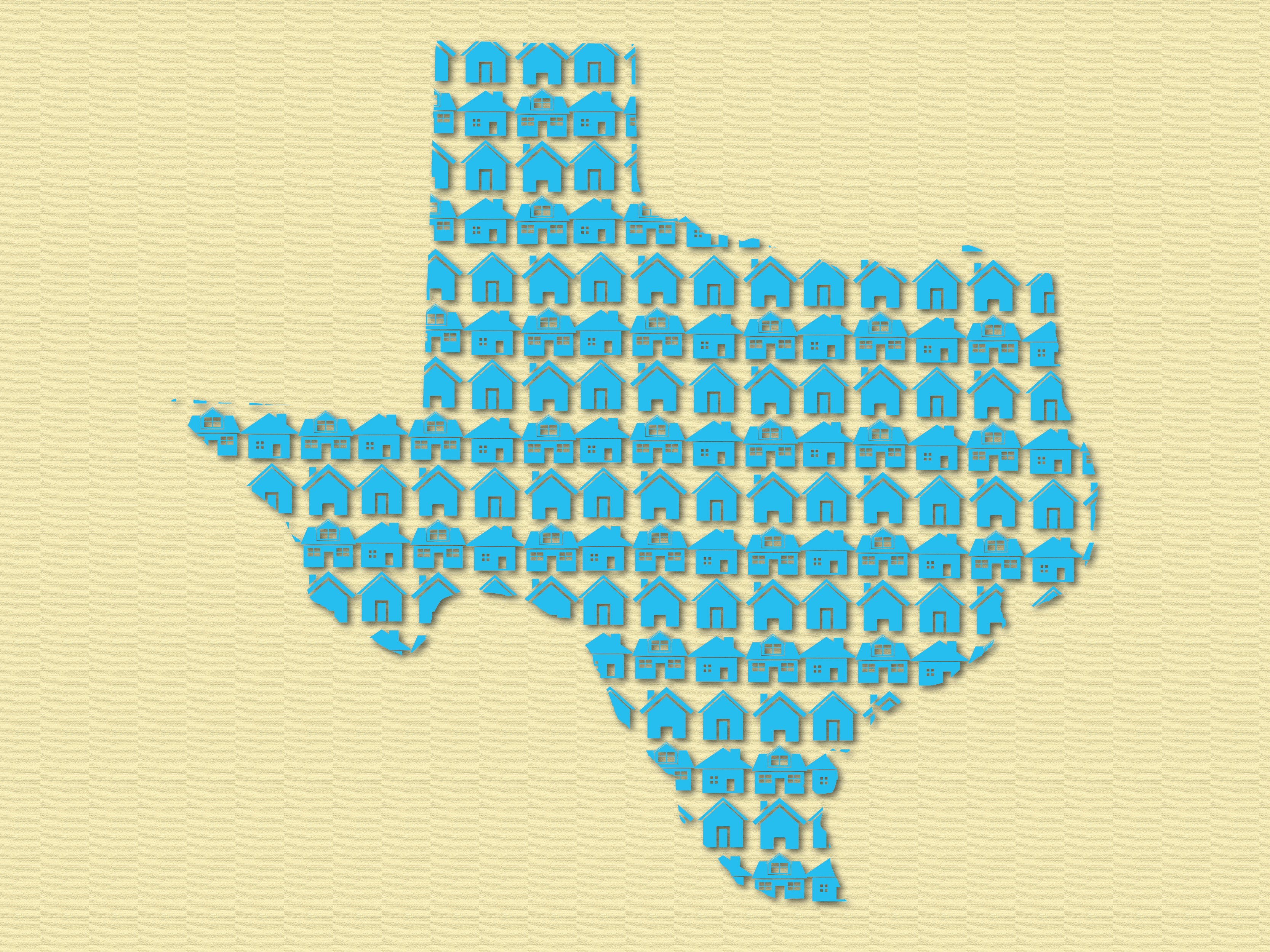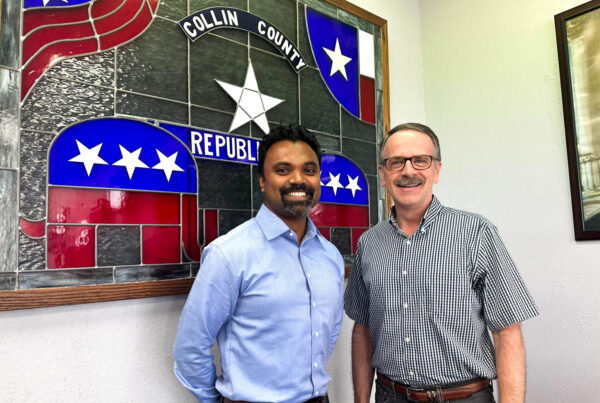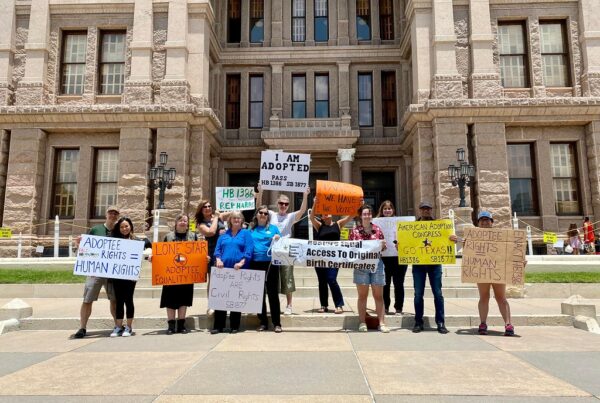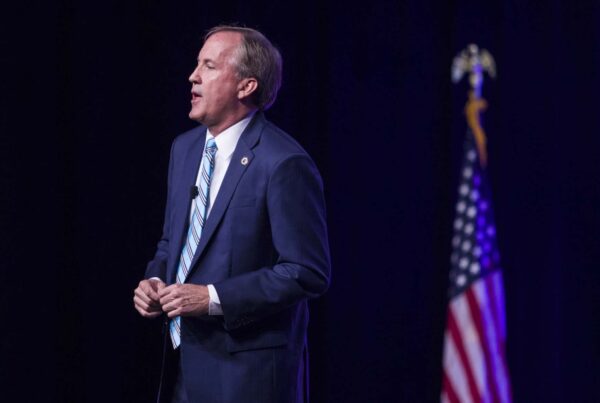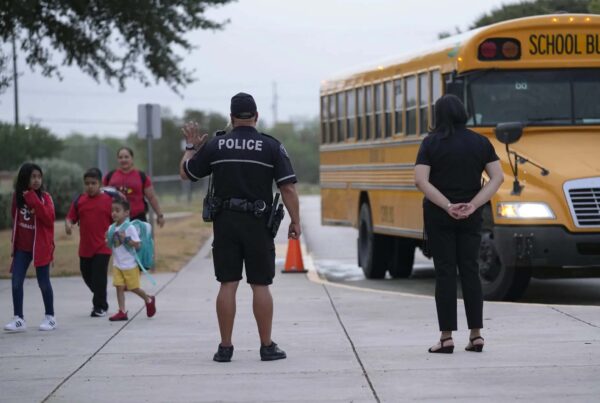Texans love to complain about people moving in from other states – especially from a certain one on the west coast.
But how many people born in Texas stick around? According to new research by the Federal Reserve Bank of Dallas the answer is: a lot. The Fed found people born in Texas are the least likely in the nation to move across state lines, and this fact is a key driver of economic growth in the Lone Star State.
Paul O’Donnell, business editor at the Dallas Morning News, took a look at the numbers, and spoke with the Standard about why Texans staying put helps the state’s economy. Listen to the interview above or read the transcript below.
This transcript has been edited lightly for clarity:
Texas Standard: What exactly does this new research tell us? How likely are Texans to stick around the Lone Star State and how does that compare to other states?
Paul O’Donnell: It’s really fascinating research. From the first day they looked at what they called the “stickiness” of the state. And that basically means how how likely a state is to retain its native born population.
And in Texas, the percentage is 82% of people born here stay here. I had worked in the Midwest for many years, and the topic there for decades had been brain drain and how to prevent the best and the brightest from leaving. That’s clearly not the case here.
I want to ask why it matters for economic growth. I mean, obviously some answers to that come immediately to mind. But how do you see that?
It’s all about the economic growth.
As you know, for decades here “jobs, jobs, jobs” has been the story of the Texas economy. And that’s pretty much one of the findings of the research, is that a state like Texas, which has considerable job opportunities and consistent economic growth, is more likely to keep people from leaving the state.
And you think about the major cities in Texas – you know, you could easily move from a job in Dallas to one in Houston to one in Austin to one in San Antonio.
» RELATED: What does a population boom mean for Texas housing and infrastructure?
You know, it seems to me, though, this also extends into larger matters of public policy. I know that I’ve lived in other places where the state has made a major investment in schools. And the argument for that is that this will help train our workforce. And I’ve often thought – especially since the 1980s, as America has become a much mobile nation by and large – well, you know, does that investment really benefit the state? Or with such mobility, maybe not? It sounds like, in Texas, there’s an argument there to be made that, yeah, it directly benefits the state, given our trends.
Absolutely. And I’ll just tell you a little anecdote that I think illustrates your point.
My son went to middle school and high school here and then went to college here. His group of friends all went to different colleges, either in Texas or surrounding states. All of them kind of beelined back here right after graduation and all found jobs really quickly and fairly decent-paying occupations.
And I think that, first of all, it’s an indication of the strength of the economy in Texas. But it’s also the college graduates are the people that are in high demand, and they’re the ones that we definitely want to keep in the state of Texas or bring back to Texas after their college days.
Well, to that point, does the research indicate or give any insight as to why Texans are more likely to stay close to home?
Yeah, there’s a whole bunch of factors. I mean, for every one that you can think of who stayed, you can think of someone who left.
But it’s really the job opportunities, the above average job growth that Texas has had for several decades now, the tax policies in the state – we don’t have an income tax. We’re one of a handful states in the country that don’t.
Housing costs – even though we all know in Texas that those have gone up in recent years – if you’re coming from somewhere else, we still have a relatively low cost of living. And it’s just the ample opportunities that exist in all the cities around here.
At the same time, Paul, I don’t want to “rah-rah” too much because of course we’ve been hearing and seeing, reading in places like the Dallas Morning News, stories about Texans who cannot abide by some of the more recent changes in laws that affect the social infrastructure – ability of people to afford health care, for example, laws that are seen as undermining the rights of people of color and sexual orientation, that sort of thing. To what extent is that affecting migration trends in Texas?
Again, this will be anecdotal, but I got an email from a reader after this story was published that essentially said, and I’ll quote from this reader, it basically said, “I can’t wait to move my family of five to the Pacific Northwest and get away from the oppressive policies of Texas.” There are people who feel that way, of course.
» RELATED: ‘I’d rather be out than dead’: Families of transgender youth reflect on Texas’ anti-trans laws
There’s an old saying in politics that, you know, “it’s the economy, stupid.” James Carville made that phrase famous way back in the nineties. And I think as long as the economy in Texas remains strong, you’re going to consistently see people stay here or move here.


